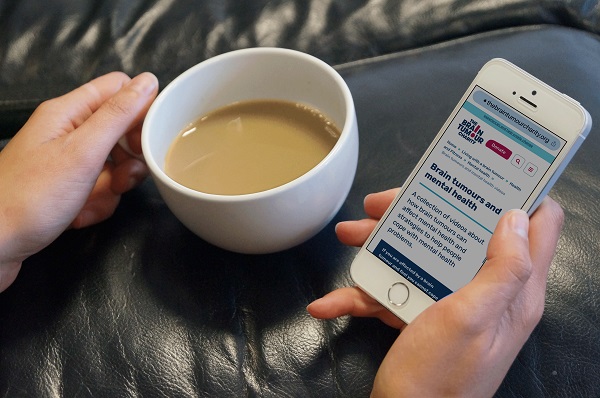How to cope with grief: Tips for looking after yourself
Unfortunately there is no standard approach for how to cope with grief, since we all experience it differently. But, we have some tips on how to look after yourself when experiencing grief. These include self-care, clear communication and professional support if you feel you need it.
On this page, we’ll cover:
- What does “looking after yourself” mean when you’re grieving?
- Self-care tips when experiencing grief
- Letting people know how you want to be supported
- Getting professional support

How to cope with grief: What does “looking after yourself” mean?
When you’re experiencing grief, looking after yourself is so much easier said than done. But what does “looking after yourself” actually mean?
For some, it might mean practicing self-care when you get the chance, taking time for yourself instead of supporting others or simply doing something you enjoy.
After losing someone, no matter who that is, it often feels like there’s lots that needs to be done and many people who need your support. But making sure we’re supporting ourselves is just as important.
Although grief isn’t a mental health disorder, experiencing grief can lead to mental health disorders – for example, depression and anxiety. This means it’s essential to practice self-care as much as you can to protect your wellbeing.
These tips can’t erase grief, but they could help you feel a little bit better or help you cope with your grief. Even if it’s just for a moment.
Self-care tips when experiencing grief
Looking after yourself can look like many different things, including:
- journalling, writing down how you feel
- talking to someone about how you feel, whether that’s a professional, a support group, a friend or a family member
- going outside
- exercising
- yoga for grief
- staying hydrated
- doing something you enjoy
- listening to music
- having a hot bath
- trying something you’ve never done before
- organising something in your loved one’s memory, this could be anything from a walk to a sky dive
- meditating or practicing mindfulness
- volunteering
- visiting your place or worship. prayer
In this video below – Julia Samuel shares with us ‘Things that can help us grieve’.
Letting people know how you want to be supported
Another way of looking after yourself when you’re experiencing grief is letting the people around you know how you want to be supported. You may feel overwhelmed by the support being offered, or your friends and family may not know how to support you in the best way. It may be helpful to let them know how you are feeling and how you want to be supported.
For example:
- “I want to vent and just be heard.”
- “I just want to sit in silence together please.”
- “Can we go out and do something fun.”
- “I love and appreciate you, but I just want to be on my own today.”
- “It would really help me if you could pick the kids from school / cook dinner tonight / help me clear out mum’s house.”
- “I really need advice on something. Can you help?”
- “I just need to be on my own and will let you know when I am ready”
Unfortunately, sometimes people can say things they think are kind and helpful. But if this doesn’t match how you want to be supported, it might actually be more upsetting than comforting. If this happens, it’s completely okay to express this.
Getting professional support
You might find it helpful to speak to a professional about your grief. Your GP should be able to signpost you to local support. They may also refer you to talking therapies which involves talking to a trained professional about your thoughts, feelings and behaviour. In some areas you are able to refer yourself into talking therapy.
You can also find a list of other bereavement support services by clicking the link below.
Free counselling
The Brain Tumour Charity is offering up to eight free counselling sessions to anyone diagnosed with a brain tumour or their loved ones.

Support and Information Services
Research & Clinical Trials Information
You can also join our active online community.
In this section

Get support
If you need someone to talk to or advice on where to get help, our Support and Information team is available by phone, email or live-chat.

Join our community on Facebook
Our closed Facebook groups are a great place to connect with other people affected by a brain tumour and share your experiences.